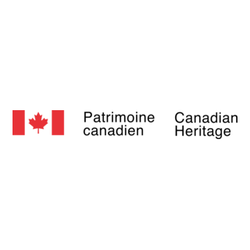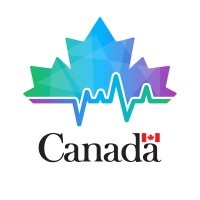
Closed
Indigenous Languages Program - Indigenous Languages Component - First Nations Languages Funding Model
Last Update: October 28, 2025
QC, Canada
Supports revitalization and maintenance of First Nations languages
Grant and Funding
At a glance
Funding available
Financing goals
Integrate new technologies
Increasing community impact
Develop strategic partnerships
See more
Eligible Funding
- Up to 100% of project cost
Timeline
- Closing date : November 12, 2025
Eligible candidates
Eligible Industries
- Educational services
- Arts, entertainment and recreation
- Other services (except public administration)
- Public administration
Location
- Quebec
Legal structures
- Non-profit
- Public or Parapublic institution
- For-profit business
Annual revenue
- All revenue ranges
Organisation size
- All organization sizes
Audience
- Indigenous Peoples
Non-profit candidates
Sector of operation
- All industries
Target groups
- All the groups
Revenue structures
- All structures
Scope
- All dimensions
Overview
The Indigenous Languages Program – First Nations Languages Funding Model offers up to 100% funding for eligible costs, with applications of $150,000 per year and under funded through a grant agreement, and higher amounts via contribution agreements. This government program supports First Nations organizations in reclaiming, revitalizing, maintaining, and strengthening Indigenous languages through activities such as language planning, immersion programs, curriculum development, and resource creation.
Activities funded
- Development and implementation of First Nations language revitalization plans and programs.
- Immersion activities and language nests to create new speakers and increase fluency.
- Capacity building and training initiatives, including curriculum and resource development for language instruction.
- Community engagement activities, such as promotion, awareness campaigns, conferences and planning events focused on language revitalization.
- Documentation and archiving of First Nations languages, including development of multimedia materials and resources.
Eligibility
- The applicant must be a First Nations organization or group within Canada, in good standing.
- The applicant must be owned and controlled by First Nations persons and deliver or support First Nations language revitalization services.
- The applicant must be a First Nations government or equivalent, a First Nations-led institution (including accredited programs), or a First Nations-led not-for-profit organization.
- For the annual and multi-year stream: eligibility extends to First Nations ad hoc groups formed for a specific language work plan or First Nations for-profit organizations (provided activities do not result in income generation for their sole benefit).
- For the ongoing programmatic funding stream: the applicant must have a long-term language plan or work plan and a minimum of two years’ experience providing First Nations language revitalization services.
Who is eligible?
- First Nations governments or equivalent organizations and their delegated authorities
- First Nations-led institutions, including accredited programs
- First Nations-led not-for-profit organizations
- First Nations ad hoc groups formed for specific language work plans (for annual and multi-year streams)
- First Nations for-profit organizations (for annual and multi-year streams, provided no income generation for sole benefit)
Who is not eligible
- Organizations that are not owned and controlled by First Nations persons.
- Companies whose primary purpose is commercial enterprise or income generation for their sole benefit.
- Organizations focused on broadcasting or media production as their main operation.
- Businesses seeking funding for core educational programming (Pre-school to Post-Secondary), major construction, or large-scale renovations.
- Entities with compliance or standing issues with the Department of Canadian Heritage (such as unresolved past funding or late reports).
Eligible expenses
- Start-up costs for organizations supporting First Nations language reclamation and revitalization.
- Salaries and employee benefits for roles directly related to the project.
- Stipends, allowances, or honoraria for participation in courses or activities (in exceptional circumstances).
- Travel expenses (within government-permitted rates) related to project activities.
- Professional development and training program costs.
- Meeting expenses connected to funded activities.
- Rent and utilities related to program activities.
- Photocopying and printing services associated with project delivery.
- Translation and communications expenses for program needs.
- Professional, consulting, and Elder fees for services rendered.
- Equipment rental, service, and purchase.
- Information technology costs, including hardware and software purchase or upgrades.
- Minor renovation expenses tied to promotional language activities.
- Project supplies and resource materials directly related to the funded activities.
- General liability insurance necessary for project implementation.
- Administrative costs such as bookkeeping, office supplies, telephone, utilities, postage and courier fees, rent for office space, audit, legal, and translation (administrative costs may not exceed 15% of total approved funding).
Eligible geographic areas
- British Columbia
- Ontario
- Quebec (note: for Cree Nations in Quebec, contact Cree Nation Government; other applicants contact Regional Committee on First Nations Languages)
- Nova Scotia
- Alberta
- Saskatchewan
- Manitoba
- New Brunswick
- Prince Edward Island
- Newfoundland and Labrador
- Yukon (for self-governing First Nations, contact respective First Nation government)
- Northwest Territories
Selection criteria
- Demonstration that the project supports the objectives of the Indigenous Languages Component—First Nations Languages Funding Model.
- Clarity and detail in the description of proposed activities to be funded.
- Clear articulation of the expected results from the proposed activities.
- A budget that is clearly linked to the proposed activities.
- Disclosure of partners, if applicable, and the role they will play in the project.
How to apply
- Step 1: Review Application Guidelines
- Read the official application guidelines for the Indigenous Languages Component—First Nations Languages Funding Model in their entirety.
- Ensure you understand funding streams and requirements for your region.
- Step 2: Identify the Correct Application Channel
- If you are located in British Columbia, Ontario, Quebec (except Crees), or Nova Scotia, contact your regional First Nations Regionally Designated Organization for region-specific forms and instructions.
- If you are in regions without a Regionally Designated Organization (such as Alberta, Saskatchewan, Manitoba, New Brunswick, Prince Edward Island, Newfoundland and Labrador, Yukon, Northwest Territories), apply directly to the Department of Canadian Heritage.
- Self-governing Cree Nations in Quebec and self-governing First Nations in Yukon should contact their respective First Nation government.
- Step 3: Request the Application Package
- Contact the Indigenous Languages Program at autochtone-indigenous@pch.gc.ca or by phone to request the appropriate application forms and checklists.
- Step 4: Prepare Complete Application Package
- Complete all required forms, including:
- Annex B: General Application Form
- Annex C: Organization Overview
- Annex D: Summary
- Annex F: Budget Template
- Appendix 1 (for language plan development), Appendix 2 (project/ongoing program activities), or Appendix 3 (ongoing programmatic funding), as applicable
- Annex E: Declaration and Attestation
- Gather and attach all supporting documents listed in Annex A, including proof of community or leadership support (e.g., band council resolutions, letters, or emails), or an explanation if unavailable.
- Step 5: Submit the Application
- Submit the complete application package electronically to autochtone-indigenous@pch.gc.ca or as instructed by your regional organization.
- Ensure the application is submitted by November 12, 2025, at 11:59 p.m. (PT) for the 2026–2027 cycle.
- Step 6: Confirmation and Follow-Up
- Canadian Heritage will acknowledge receipt of your application within two weeks.
- Prepare to respond to possible requests for additional information.
Additional information
- Recipients must publicly acknowledge the financial support received from the Government of Canada in all communications and promotional materials.
- Canadian Heritage reserves the right to audit recipients and require them to retain relevant records for five years.
- Applicants are required to comply with conflict of interest guidelines, including having a publicly available policy if managing regional adjudication or administration of funding.
- Funding decisions are final, and evaluations can result in feedback from the review committee for unsuccessful applications.
Contacts
autochtone-indigenous@pch.gc.ca
819-934-1405
QC, Canada
Apply to this program
Frequently Asked Questions about the Indigenous Languages Program - Indigenous Languages Component - First Nations Languages Funding Model Program
Here are answers to the most common questions about the Indigenous Languages Program - Indigenous Languages Component - First Nations Languages Funding Model. This section explains what the program is, how much funding is available, eligibility requirements, application deadlines, and other important details to help you determine if this grant is right for your business.
What is the Indigenous Languages Program - Indigenous Languages Component - First Nations Languages Funding Model?
How much funding can be received?
Who is eligible for the Indigenous Languages Program - Indigenous Languages Component - First Nations Languages Funding Model program?
What expenses are eligible under Indigenous Languages Program - Indigenous Languages Component - First Nations Languages Funding Model?
Who can I contact for more information about the Indigenous Languages Program - Indigenous Languages Component - First Nations Languages Funding Model?
Where is the Indigenous Languages Program - Indigenous Languages Component - First Nations Languages Funding Model available?
Is the Indigenous Languages Program - Indigenous Languages Component - First Nations Languages Funding Model a grant, loan, or tax credit?
Apply to this program
More programs like this

Grant and FundingOpen
ÉcoPerformance — Recommissioning of building mechanical systems
Gouvernement du QuébecFunding to optimize the operation of building mechanical systems

Grant and FundingClosed
NovaScience Program - Support for projects in scientific culture and innovation
Gouvernement du QuébecNovaScience promotes scientific culture and innovation development

Tax CreditsOpen
Tax holiday for a new business created to commercialize intellectual property
Ministère de l'économie, de l'innovation et de l'énergie du Québec (MEIE)Tax credit for commercialization of intellectual property (IP) in Quebec

Grant and FundingClosed
Call for projects to combat homophobia and transphobia
Gouvernement du QuébecFunds Quebec organizations’ projects combating homophobia and transphobia

Grant and FundingClosed
Accelerating the local climate transition - Component 1
Environnement Québec (MELCC)Supports municipal climate action planning and implementation in Quebec

Grant and FundingOpen
Innovative Projects Program
Hydro-QuébecSupports innovative, energy-efficient projects for multi-building developments

Tax CreditsWage Subsidies And InternsOpen
Financial assistance for the hiring of a person to integrate a job on a long-term basis
Gouvernement du QuébecSupports employers hiring candidates facing employment barriers

Grant and FundingClosed
Addressing Racism and Discrimination in Canada’s Health Systems Program
Health CanadaSupports culturally safe, equitable health services for marginalized communities

Partnering and CollaborationGrant and FundingClosed
International Climate Cooperation Program (ICCP)
Environnement Québec (MELCC)Supports Quebec-driven climate action projects in francophone countries

Partnering and CollaborationGrant and FundingExpert AdviceSuspended
Financial support to assess your energy use Hydro Quebec
Hydro-QuébecUp to $50,000 for energy performance analysis and optimization
Sign up to our platform to access the Indigenous Languages Program - Indigenous Languages Component - First Nations Languages Funding Model information sheet for free
Get access to 4,000+ programs, practical guides, personalized alerts, and an AI assistant to support your grant applications.